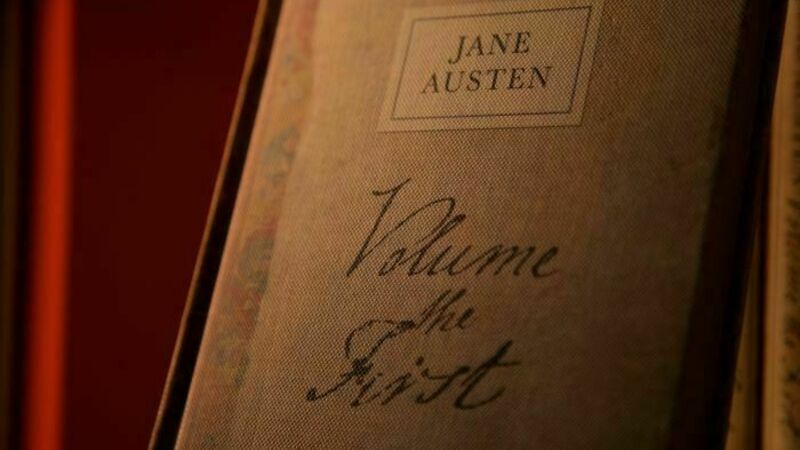Jane Austen’s novel, Emma, explores the lavish life of 21-year-old Emma Woodhouse, who is “handsome, clever, and rich, with a comfortable home and happy disposition...” (5). Throughout the novel, Emma mingles with the community of Highbury in particularly improper ways. For example, regardless of Harriet Smith’s unknown origins and rank, Emma attempts to advantageously match her with the wealthy Mr. Elton. Furthermore, although Emma has little desire to marry, she openly flirts with Frank Churchill, the stepson of her dear friend, Mrs. Weston. But despite how egregious Emma’s behavior seems, the novel gives us a partial justification in its attention to her lack of guidance throughout life, highlighting the importance of adequate parenting.
Due to the death of her mother at a young age, Emma has little direction on proper manners and acts inappropriately in the novel as a result. In the Romantic period, a mother was often responsible for staying home and educating her children. In fact, Mary Wollstonecraft, a women’s rights activist during the period, “sought to make motherhood as much as possible like a profession—hence her insistence on the active engagement of mothers in the nursing, educating, and training of their children” (Caine). Because of the death of Mrs. Woodhouse, Emma consequently loses the guidance and education that a child needs from their mother during childhood. The Woodhouses attempt to fill this void by hiring a governes—Miss Taylor. However, “the mildness of [Miss Taylor’s] temper had hardly allowed her to impose any restraint; and the shadow of authority being now long passed away, they had been living together as friend and friend very mutually attached, and Emma doing just what she liked; highly esteeming Miss Taylor’s judgment, but directed chiefly by her own…” (5). Not only does Emma innately lose a valuable education on manners with the death of her mother, but she is hardly disciplined by her own governess. Without any proper maternal figure in Emma’s life, the reader can hardly expect Emma to develop good manners by herself. This absence of guidance possibly accounts for instances when Emma does not behave well; for example, Emma exhibits her lack of restraint when flirting with Frank Churchill even though she “[has] very little intention of ever marrying at all” (67). Because she never grew up with a mother to train her into proper behavior, Emma falls into a habit of impropriety throughout the novel.
Not only does Emma lack the guidance of her mother, but her father is also unfit to the task of correcting her poor decisions; his blind love for Emma combined with his mental incompetencies are no match for his daughter. Emma recognizes this when reflecting, “She dearly loved her father, but he was no companion for her. He could not meet her in conversation, rational or playful” (6). Because Mr. Woodhouse does not have the same sharpness of mind as Emma, he fails to recognize her faults. This misfortune is highlighted when Emma misinterprets Mr. Elton’s letter to be one of admiration for Harriet Smith (instead of for herself), and she tells her father that a “fairy” came and dropped it off. Mr. Woodhouse—oblivious and uninvolved—merely responds, “It is such a pretty charade, my dear, that I can easily guess what fairy brought it.—Nobody could have written so prettily, but you, Emma” (62). This instance shows both his blind love for Emma and his inattention to her schemes. If he had been a more attentive father, he would have caught onto Emma’s “charade” of matchmaking Harriet with Mr. Elton and prevented her from taking it any further—a mistake that eventually leads to Harriet’s heartbreak. Additionally, Mr. Woodhouse’s hypochondria shows his lack of awareness for anybody but himself and hinders him from educating Emma properly. For example, when the Woodhouses entertain a party of guests at their estate for dinner, Mr. Woodhouse obsesses over his diet so much that he rudely (though unintentionally so) tries to advise his guests on how to eat healthy: “Miss Bates, let Emma help you to a little bit of tart—a very little bit [...] I do not advise the custard. Mrs. Goddard, what say you to half a glass of wine?” (20). This behavior is hardly courteous, and provides an especially bad example of good conduct for his young and impressionable daughter. Clearly, Mr. Woodhouse is not suitable to be raising a child, let alone doing so without a wife to help him along the way. In turn, Emma has to navigate the world on her own—accounting for her otherwise impardonable actions.
The only character that comes close to properly correcting Emma’s behavior is Mr. Knightley, though he too is inadequate as a parental figure in her life. The very first glimpse Austen gives of Mr. Knightley is as follows: “Mr Knightley, in fact, was one of the few people who could see faults in Emma Woodhouse, and the only one who ever told her of them…” (9). In this sense, Mr. Knightley provides a fatherly role in Emma’s life by attempting to rectify her behavior when her father can’t. However, it is important to note that in the beginning of the novel, Emma doesn’t follow Knightley’s advice to the extent that a child follows their parents’ demands. For instance, Mr. Knightley rebukes Emma for letting Harriet deny a marriage proposal from Robert Martin—a farmer on Knightley’s property. He recognizes the uncertainty of Harriet’s origins and thinks that Emma is misleading Harriet in setting up such an advantageous marriage prospect with Mr. Elton. But when he vocalizes this, Emma simply “[is] sorry, but could not repent. On the contrary, her plans and proceedings were more and more justified, and endeared to her by the general appearances of the next few days'' (54). When a parent scolds their child, the child has no choice but to listen; Emma, however, carries on like before and even Mr. Knightley, whom she holds in the dearest of regards, cannot control her. Furthermore, Mr. Knightley is not always correct in his judgment; while he may challenge Emma’s behavior sometimes, Emma also challenges him. When talking about Frank Churchill’s absence from Highbury, Mr. Knightley believes Frank is immature and could make more of an effort to visit his family sooner. Emma quickly defends Frank and tells Mr. Knightley, “You are the worst judge in the world, Mr. Knightley, of the difficulties of dependence. You do not know what it is to have tempers to manage” (113). Emma speaks to her own experience with her father’s dependence and points out that Mr. Knightley must learn to see different perspectives other than his own. Their relationship, therefore, is one of mutual education, not one of parent—child relation—something Emma still lacks.
In spite of the fact that there is no fully adequate parent in Emma, the novel does suggest that a parent should exhibit proper attention and affection to their child while also imparting discipline through restraint. The novel’s characters, rather than being portrayed by Austen as model parental figures, come to display how not to parent. For example, neither Jane Fairfax nor Frank Churchill have strong relationships with their parents. Because Jane became an orphan when she was three years old, she has limited options for her future and plans on becoming a governess (125). Frank is constantly held back by his mother and even has to wait to marry the woman he loves until she dies—for it is not until his mother passes that his uncle approves the match (340). We come to understand, therefore, that while a parent must be present throughout their child’s life to some degree (unlike Jane’s parents), it must not be to the point where it inhibits their independence (like Frank’s reality). This idea is further confirmed by the novel when Emma prepares to babysit her nephews; Emma comments “I do not think [the children] would fare much better with uncle Knightley, who is absent from home about five hours where she is absent one…” (240). According to Emma, a parent cannot always be in and out of work as Mr. Knightley is; children need ample time and attention in order to be fully cared for. Further adding to the complexity of proper parenting, Emma acknowledges that while a parent must not be too controlling (like Mrs. Churchill), they must still restrain their child to some degree. When talking of her nephews, she notes that “happiness must preclude false indulgence and physic” (239). In other words, she must not spoil her nephews and always let them have their way—directly contradicting how she is raised by her father and Miss Taylor: “The real evils indeed of Emma’s situation were the power of having rather too much her own way…” (5). Though Emma wants to make her nephews happy and show them affection, she understands the dangers of acceding to a child’s desires: it can cause the child to be spoiled and display egregious behavior similar to the way Emma acts in the novel. All in all, a proper parent should be affectionate and attentive, but also slightly authoritarian towards their children.
While it is easy to write-off Emma’s behavior as unacceptable, Jane Austen excuses it in part by providing context on the manner of her upbringing. After all, in Emma’s words, “It is very unfair to judge of any body’s conduct, without an intimate knowledge of their situation” (113). In Emma’s case, she consistently lacks guidance from a parental figure, forcing her to learn from her mistakes. Austen seems to suggest that a child must receive attention, affection, and discipline otherwise they will struggle just as Emma does.
Works Cited
Austen, Jane. Emma. Edited by John Mullan, Oxford University Press, 2022.
Caine, Barbara. “Women.” An Oxford Companion to the Romantic Age: British Culture 1776-1832, edited by Ian McCalman, Oxford Univ. Press, 2009.

